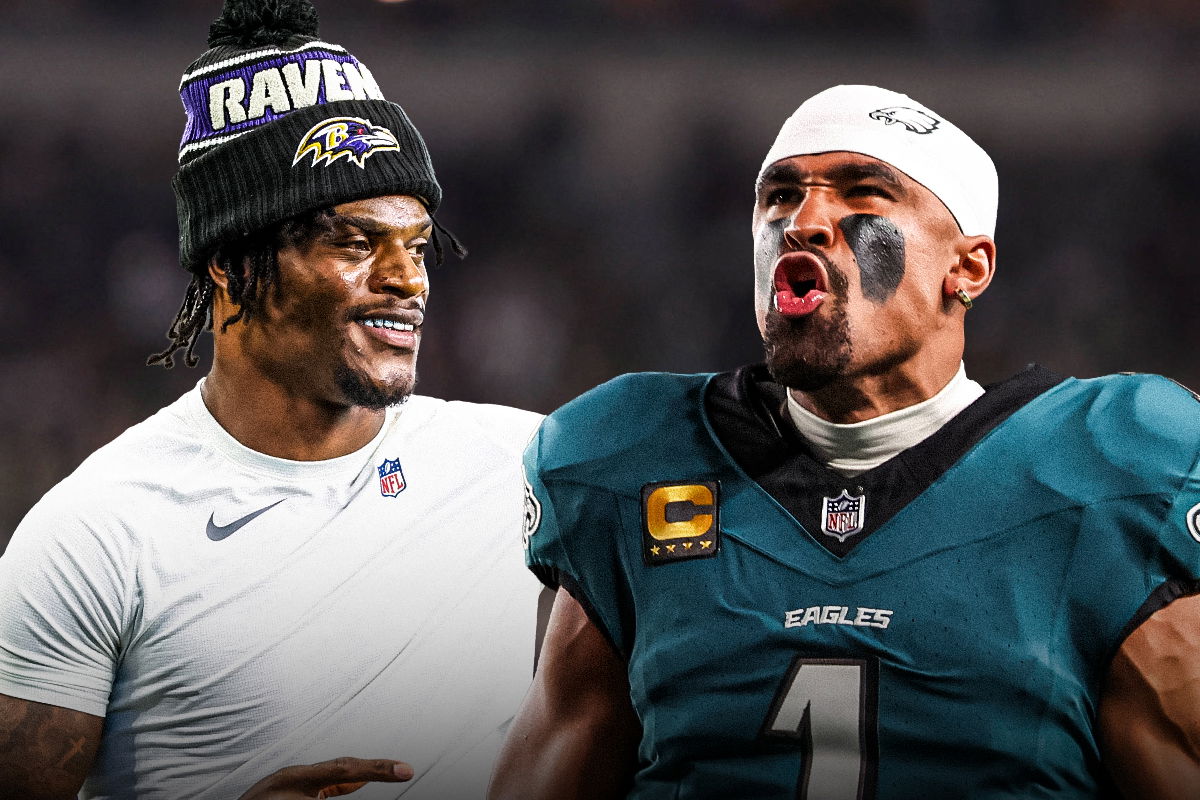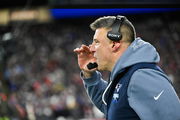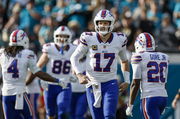
Imago
Image Credit: Imago

Imago
Image Credit: Imago
The NFL talks tough about loyalty, but when it comes to early extensions, locking up a player with two (or more) years left, most teams keep their hands in their pockets. It’s rare. Risky. And in a league built on ‘what have you done lately? Windows shrink fast. Only 20 clubs have pulled the trigger at least once. Six teams have tried it twice, twelve have done it once. The Eagles sit in their own tier with five such bets. The Ravens aren’t far behind if you include a pair of one-year-early deals alongside two true two-year-out strikes.
Watch What’s Trending Now!
Why the hesitation? Start with the cap. It’s a moving target, $255.4 million in 2024, up to $279.2 million in 2025, and a mistimed commitment can turn into dead money shrapnel. The Rams ate $20.15 million when Todd Gurley’s knees gave out and they cut him in 2020. The Eagles carried a then-record $33.8 million dead charge when they shipped Carson Wentz in 2021. That’s the nightmare. Paying premium dollars for yesterday’s player while today’s roster gasps for air.
The teams risk locking up a portion of their cap space for promise, not proven results. But there is a way to bypass that. Sign a contract with heavy money loaded upfront. But that’s where the economics get complicated. Teams often tend to put more money in the latter part, which creates more problems. Then, there are health issues.
ADVERTISEMENT
Projecting performance two years ahead is guesswork with a helmet on. Injuries swerve careers off course, usage changes, schemes change, and coordinators move on. Michael Thomas signed a monster extension in 2019, missed most of 2020–22, and the Saints finally released him in 2024 after rewrites couldn’t save the relationship. Good scouting helps, but even good scouting can’t see a high ankle sprain from 18 months out.
Injuries often mess with playing time, hurting the teams in their position and money both. So why do the Eagles keep doing it? Stability, development, and a willingness to beat the market by paying sooner. Philadelphia re-upped A.J. Brown in April 2024 on a three-year, $96 million add-on when he still had three seasons left. An aggressive move that briefly made him the highest-paid receiver by AAV.
Weeks later, they extended DeVonta Smith (two years of team control at the time) for three years and $75 million, then in March brought back Landon Dickerson (one year early) on five years for $84 million. In April 2024, they extended left tackle Jordan Mailata with two years remaining. In March 2025, Lane Johnson added a year despite having two years left. That’s a front office, particularly Howie Roseman’s pressing advantages, that it actually owns.
ADVERTISEMENT
Look at how quickly the market punished anyone who waited. After Browns reset the bar in April 2024, Justin Jefferson blew past it in June at $35 million per year. Less than a year later, Ja’Marr Chase hit four years and $161 million – $40.25 million per year. Pay early, and you’re buying against tomorrow’s inflation. Wait, and you’re paying the proof-of-concept tax.
Baltimore’s a kindred spirit, just more selective. Eric DeCosta extended Marlon Humphrey in October 2020 with two years left, then paid him like a franchise corner. In June 2025, the Ravens added three new years onto Rashod Bateman, who still had two seasons remaining after a 2024 add-on, locking a still-ascending receiver into the Lamar Jackson timeline.
ADVERTISEMENT
And on August 27, they moved two years early again, making Kyle Hamilton the league’s highest-paid safety (per annual average) while he still had his fourth year and a 2026 option in his pocket. Even when Baltimore has moved only a year early (Ronnie Stanley in 2020 and Mark Andrews in 2021), the philosophy is the same. Bet on your evaluations and your locker room.
Elsewhere, early extensions read like confidence checks of your entire process. The Chiefs did it with Patrick Mahomes in 2020, tacking on 10 years with two seasons left. Five years later, that deal looks like a bargain. The Bills jumped at Josh Allen in 2025 with three years to go.
However, some have gone way off track.
ADVERTISEMENT
Early extensions gone horribly wrong
The cost of being wrong? Ask the cap folks. The Wentz dead cap became a cautionary tale in every building. Gurley’s dead money did the same. Ronnie Stanley’s 2020 extension was heavily front-loaded, $47.1 million by March 31, 2021, illustrating another truth. If you are going early, put cash up front to buy maximum downstream flexibility. You are not just betting on a player, you’re engineering escape hatches.
So yes, the NFL remains a prove-it league. The average age of an NFL player is 27 years, 1 month, and 29 days. That’s pretty young. Most front offices would rather wait until the final year, squeeze one more data point, and let the market set itself. That’s why only 20 teams have tried true multi-year deals the last several cycles, and why six have tiptoed in twice while a dozen have taken a single swing.
ADVERTISEMENT
However, when it comes down to really big money, teams like the Ravens also walk a careful path. QB Lamar Jackson is 28, smack in the middle of his prime, and the face of everything Baltimore wants to be. But he can also wait as his contract ends in 2027. That five-year, $260 million extension from 2023 looked massive, but the cap hits tell a scarier story. $43.5 million in 2025. $74.5 million in both 2026 and 2027. Those figures could choke any roster, let alone one trying to stay in perennial Super Bowl contention. So, are they brave enough to bet now or wait and let the market expand?
Top Stories
Mike Vrabel Threatens to Bench Locker Room for Super Bowl After Patriots Win vs Broncos

NFL Announces Punishment Decision for Josh Allen’s Bills Following Divisional Round Loss

Sean Payton’s Stern Statement on Jarrett Stidham’s Mistake After Assigning Blame for Broncos’ Loss

Jarrett Stidham Breaks Silence on Broncos Mistake After Controversial Incident vs Patriots

Adverse Conditions Force Travis Kelce-Patrick Mahomes’ Business Partnership to Close on Saturday

Early extensions are faith, bordering on audacity. Faith in scouting, in development, in a culture that keeps good players good. The Eagles and Ravens are thriving till now. Most of the league? Still staring at the injury report and the cap sheet. Too scared to call the shot!
ADVERTISEMENT
ADVERTISEMENT
ADVERTISEMENT



